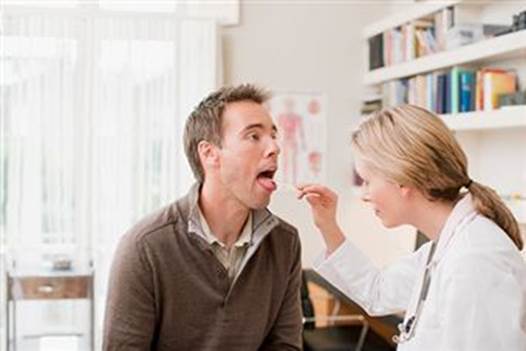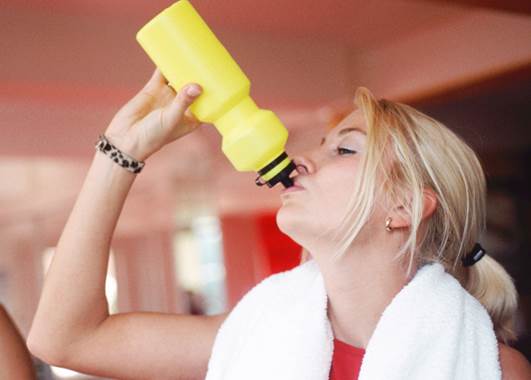Xerostomia (dry mouth) is not a disease but
a symptom of some diseases.
Although dry mouth is common in old people,
it also occurs in all age groups when the amount of saliva in mouth is secreted
less.
Interesting knowledge about saliva
You always find saliva in the mouth, but
maybe you don’t know where it is from, its components and effects. Saliva is
quite dense liquid, colorless, slightly turbid, frequently in our mouths.
Saliva is produced by cells inside of lips, mouth, especially the three major
salivary glands in mouth: sublingual one, one near the jaw line and one at
cheeks.

Saliva of each gland have slightly
different compositions, but generally contains 98% of water, the rest is mucous
greasy material, the minerals as calcium, sodium, potassium, bicarbonate,
phosphate, amylase, lipase, several resistant bacteria substances. Normally,
every day in adults produce 0.5 - 1.5 liters of saliva. Saliva role:
masticating food, helping teeth chew masticated food together into a soft lump,
so that tongue can easily push food through esophagus to stomach. Saliva helps convert
food from hard into liquid for tongue to taste the flavor of food.
The enzymes of saliva such as amylase can
change starch to maltose sugar; lipase helps digest lipid. Saliva also helps
oral hygiene. Normally, mouth has many bacteria which can cause disease. These
bacteria live by food left in mouth and create a number of acids eroding
enamel. Saliva neutralizes these acids and can destroy some bacteria and wash
away food sticking in mouth to stomach, prevent teeth damage.
Cause of hyposalivation
There are many causes of hyposalivation:
when you are healthy, it happens when you're thirsty, work hard, sweat a lot.
When sleeping, your habits of snoring or opening your mouth also cause
hyposalivation and dry mouth. When you are sick, using chemotherapy, radiotherapy
therapy causes insufficient saliva production. Some diseases such as diabetes,
salivary gland disease, Sjogren’s syndrome are autoimmune diseases destroying
salivary and tear glands, causing dry mouth and dry eyes.

There
are many causes of hyposalivation: when you are healthy, it happens when you're
thirsty, work hard, sweat a lot.
When the nerves controlling salivary glands
hurt; or when you have snuffles, gastroesophageal reflux, stress, the secretion
of saliva is also reduced. The cases you get sick and have to use medicine,
there are nearly 400 kinds of drug having side effect reducing salivation such
as anti-allergy, antihypertensive, anti-depressant, anti-worry, diuretic,
reduce or stimulate appetite drug... The change of hormones in the body of
women in pregnancy or menopause causes hyposalivation and dry mouth.
Improve dry mouth
To treat dry mouth, first of all, you need
to take an examination to identify the reason. However, you can do some method
to improve xerostomia as follows: regular drinking (drinking small sips). You
can chew gum or sugarless candy to secrete more saliva thanks to chewing
movement, making saliva from glands circulate and be harmony to clean the
mouth, prevent tooth decay, gingivitis. You should drink a little water during
meal for food to be wet soft, easy to chew and swallow, stimulate appetite. You
need to reduce sticky sugar foods.

Reduce
dry mouth by drinking water regularly
Brush your teeth right after meal for
bacteria have no chance to ferment food left to create acid damage enamel. Go
to the dentist every 6 months to promptly detect and treat oral, dental,
salivary gland disease. You can use water spray fan, machine in bedroom at
night to reduce air dry. Use artificial saliva in the form of mouthwash, spray,
rub, pill dissolving in water can also improve dry mouth effectively. These are
things you should avoid: limit or do not drink alcohol, coffee, no smoking. Do
not eat food too salty, spicy.